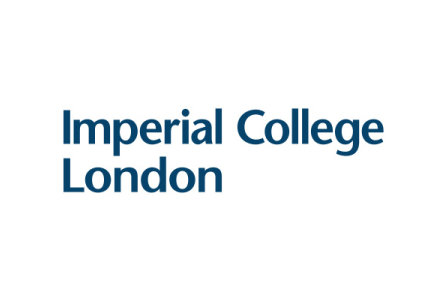Imperial College London: £6 million gift to accelerate biomedical engineering breakthroughs
A donation from the Michael Uren Foundation will drive new pathbreaking research at the intersection of medicine and engineering.
The £6 million gift will fund new biomedical engineering research along with two endowed scholarships for exceptional PhD students. In addition, an annual prize will be awarded to postgraduate students whose research has the potential to revolutionise their chosen field.
The remarkable generosity of Sir Michael Uren has left a lasting legacy at Imperial
Professor Alice Gast
President
The late Sir Michael Uren is the most generous donor in Imperial College London’s history. His £40 million gift in 2014 established the Sir Michael Uren Hub at White City, a state-of-the-art facility which brings researchers, engineers, scientists and clinicians together to tackle some of the world’s most pressing biomedical and healthcare problems.
Sir Michael, a proud Imperial alumnus (Mechanical Engineering and Motive Power, 1943) passed away in 2019 aged 95.
Professor Alice Gast, President of Imperial College London, said: “The remarkable generosity of Sir Michael Uren has left a lasting legacy at Imperial. This new gift will help nurture some of Imperial’s most promising PhD students who have the potential to unlock life-changing discoveries at the cutting edge of medicine and engineering, while supporting the pioneering work of our MSk Lab. We are profoundly grateful to the Uren family and the trustees of the Michael Uren Foundation for their continued support.”
Annual prize
The donation will establish an £20,000 College-wide prize, awarded annually to a postgraduate student who is producing extraordinary research that has real world impact.
The prize, which is one of the most generous in the UK, will reward exceptional postgraduate students who demonstrate academic excellence in developing innovative solutions to real-world environmental, economic, societal or health problems.
The prize aims to nurture academic talent and empower awardees with the financial freedom to further develop their research ideas and career goals. For example this could be through extending their time at Imperial, developing a prototype innovation, or undertaking a period of study or training at another institution.
Scholarships in perpetuity
The gift will support two President’s PhD scholarships in perpetuity, helping to remove barriers to PhD study for the most talented students worldwide.
Named in Sir Michael’s memory, this new programme of President’s PhD Scholarships will support interdisciplinary research across medicine and engineering, covering tuition fees and a generous stipend.
The scholarships have been designed to offer the greatest possible freedom, allowing young researchers to work across disciplines from the very outset of their careers and giving them opportunities to explore freely, to think differently, and to pursue their own research ideas.
Improving patient outcomes
Some of the donation will be directed to support pioneering research in the College’s world-leading MSk Lab to better diagnose, prevent, and treat devastating musculoskeletal diseases.
Musculoskeletal diseases are conditions that affect the muscles, bones, or joints – such as osteoporosis, rheumatoid arthritis and osteoarthritis. They can have a profound impact on a person’s quality of life, causing pain and disability.
The MSk Lab, based in the Sir Michael Uren Hub at the College’s White City Campus and led by Professors Justin Cobb and Alison McGregor, has established itself as the UK’s leading centre for research into musculoskeletal health, bone and joint disease and its treatment. Its team of over 30 full-time surgeons, physiotherapists, scientists and engineers is seeking to understand musculoskeletal health and degeneration and to prevent and treat a wide array of problems associated with impaired mobility.
The gift will enable new work, led by Professor Justin Cobb, focused on joint-preserving surgical techniques, skeletal science, and the translation of discoveries into advances in patient care.

